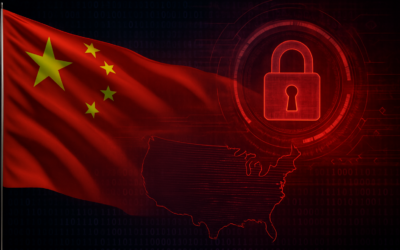In today’s fast-evolving cybersecurity landscape, it’s not enough to simply deploy the right tools or implement security policies. To ensure your organization is genuinely secure, you need thorough, accurate Professional Security Assessments— that identifie vulnerabilities, meet compliance requirements, and lay the groundwork for a proactive security strategy.
While many organizations try to handle security assessments internally, this approach often falls short due to factors like time constraints, lack of expertise, and an inherent lack of objectivity. In this post, we’ll explore why Professional Security Assessments are critical to conducting a comprehensive security assessment and how partnering with a professional can uncover hidden vulnerabilities, improve your security posture, and ultimately safeguard your organization from emerging threats.
Why Internal Assessments Aren’t Enough
Internal security assessments might seem like a cost-effective solution, but relying solely on internal resources often leads to incomplete or inaccurate evaluations. Here’s why:
- Limited Expertise
Cybersecurity is a highly specialized field, and internal IT teams, while skilled in day-to-day management, may lack the deep knowledge and experience required to identify and address complex vulnerabilities. With the constantly evolving threat landscape, internal teams may not be up to date on the latest attack vectors or emerging threats. - Time Constraints
Internal teams are often stretched thin with their regular duties, and performing a comprehensive security assessment requires focused time and effort. Without dedicated resources, internal assessments are typically rushed, leading to missed vulnerabilities or incomplete testing. - Bias and Lack of Objectivity
Being too close to the system can sometimes cloud judgment. Internal teams may overlook potential weaknesses or fail to challenge existing security measures because they’re too familiar with the infrastructure. This lack of objectivity can prevent organizations from identifying vulnerabilities that external experts would easily spot.
The Benefits of Partnering with External Cybersecurity Experts
Engaging a professional external team to conduct your security assessment offers several distinct advantages:
1. Fresh Perspective and Objectivity
External experts bring a new, unbiased perspective to your organization’s cybersecurity. They aren’t tied to the internal culture or systems, allowing them to spot vulnerabilities and inefficiencies that internal teams might miss. With a fresh set of eyes, they can identify hidden risks and ensure that the assessment is thorough and comprehensive.
2. Specialized Knowledge and Expertise
Cybersecurity professionals specialize in uncovering the most subtle vulnerabilities and threats. These experts are often equipped with cutting-edge tools, methodologies, and the latest industry knowledge. By leveraging their advanced skillsand real-world experience, you ensure a more accurate and detailed assessment of your IT environment.
3. Access to Advanced Tools and Methodologies
External experts have access to the latest security technologies, tools, and techniques that might not be available to your internal team. From vulnerability scanning to penetration testing, these professionals use state-of-the-art tools that go beyond the capabilities of basic security solutions, providing a deeper, more accurate analysis of your system’s defenses.
4. Tailored Recommendations and Actionable Insights
After completing the assessment, external professionals can provide tailored, actionable recommendations that are aligned with your specific business goals and security needs. Unlike general advice, these recommendations are based on your unique infrastructure, operations, and regulatory requirements. You’ll receive a customized roadmap for addressing vulnerabilities and improving your overall security posture.
5. Proactive Threat Detection and Prevention
The value of an external cybersecurity assessment goes beyond simply identifying current weaknesses. With specialized expertise, external teams can help develop proactive measures to defend against future cyberattacks. Their knowledge of emerging threats and industry-specific challenges ensures that your organization isn’t just responding to risks but actively mitigating them before they become a problem.
Key Areas Where External Security Assessments Add Value
An external security assessment covers a range of critical areas, including:
- Vulnerability Scanning: Identifying weaknesses in your network, applications, and systems before attackers can exploit them.
- Penetration Testing: Simulating real-world attacks to test your defenses under controlled conditions.
- Compliance Checks: Ensuring your organization meets industry regulations such as GDPR, HIPAA, or PCI-DSS.
- Incident Response Review: Evaluating your organization’s ability to detect, respond to, and recover from security incidents.
- Security Infrastructure Review: Analyzing firewalls, encryption protocols, and other security controls to identify potential gaps.
How to Get Started with a Professional Security Assessment
- Identify Your Objectives
Before engaging a third-party cybersecurity expert, clearly define what you aim to achieve from the assessment. Are you seeking to identify vulnerabilities, ensure compliance, or enhance your threat detection capabilities? Understanding your goals will guide the scope and focus of the assessment. - Select a Trusted Provider
Look for a reputable cybersecurity firm with a track record of successful assessments. Ensure they have expertise in your industry and are familiar with your specific compliance requirements. - Review the Findings and Take Action
Once the assessment is complete, thoroughly review the findings and prioritize actions based on the severity of the vulnerabilities identified. Work with your team to implement the recommendations and enhance your security measures. - Ongoing Monitoring and Evaluation
Cybersecurity is an ongoing process. Regular assessments ensure that your organization remains resilient against new and evolving threats. Partner with external experts for periodic reviews and updates to your security strategy.
Conclusion: Why Professional Security Assessments are Key to Cybersecurity Success
In the face of ever-evolving threats, a thorough security assessment is a cornerstone of a proactive cybersecurity strategy. While internal teams may be capable, the external expertise of professional cybersecurity experts provides the fresh perspective, advanced tools, and specialized knowledge needed to identify vulnerabilities and safeguard your organization effectively.
At Network Digital Security, we offer comprehensive, tailored security assessments designed to uncover hidden risks, ensure compliance, and help you build a robust cybersecurity foundation.
Contact us today to schedule a consultation and discover how our expert assessments can help you strengthen your organization’s defenses and stay ahead of the latest cybersecurity threats.



